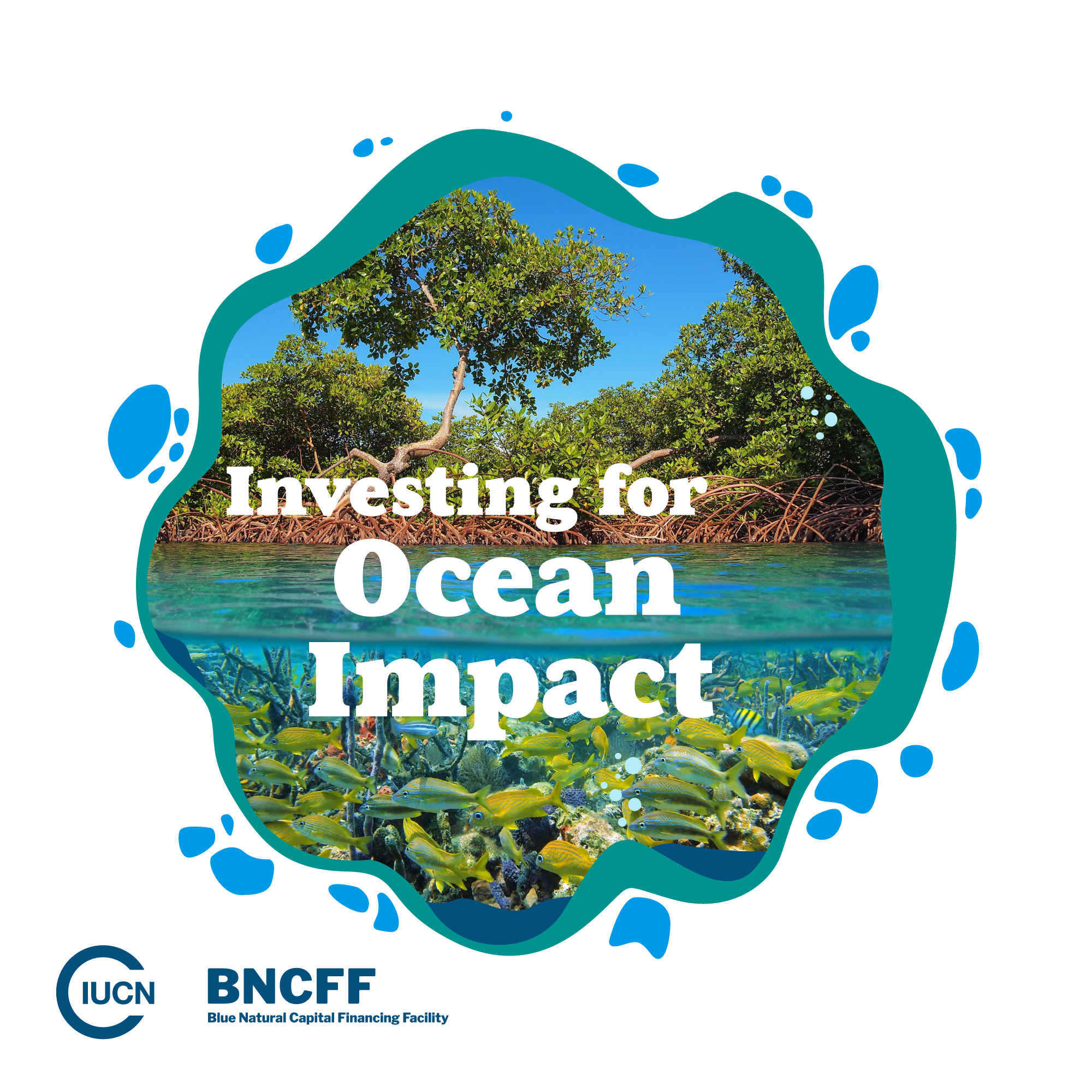Investing for Ocean Impact
The Earth is in trouble. But the ocean can help.
When it comes to tackling climate change and the biodiversity crisis, the ocean and the world’s coastlines offer many solutions. Yet these solutions don’t receive anywhere near enough money to realize them. And while governments and philanthropists should provide more funding, they can’t meet the challenge alone. Investments from the private sector are equally key to success.
Entrepreneurs across the world need support to integrate restoration and conservation into sustainable businesses. Only then can we create profit, both for people and for planet.
Join Dorothée Herr – manager of the IUCN’s Blue Natural Capital Financing Facility – to discover the reasons to invest in the ocean. In Investing for Ocean Impact we’ll talk to leading experts, global policymakers, and investment movers and shakers. We’ll also dive into real life, working examples of Nature-based Solutions, from seaweed farms to marine protected areas, and show how these are projects that investors can indeed get behind.
The time to invest in our ocean is now. Subscribe, wherever you get your podcasts, so that you never miss an episode.
Season 2
Episode 10: Blue finance on the international agenda for nature and humanity
This past year has been eventful for the ocean.
Sustainable blue economy was a central theme for global conferences: The UN High Seas Treaty negotiation success, the UN Ocean Conference in Portugal leading to the CBD Biodiversity COP15 in Montreal, the One Ocean Summit in France, Canada hosting IMPAC5, the Our Ocean conference in Panama; all without forgetting the climate COP27 in Sharm El Sheikh, Egypt, as well as the Convention on Wetlands.
Countries and companies alike have pledged enormous amounts of money for ocean conservation. Most recently, UN member states agreed to establish new/special funds for the Global Biodiversity Framework established at COP15 and for implementing the newly agreed High Seas Treaty to protect biodiversity on the high seas.
What are we to make of all this? Will these commitments translate into real actions? Are governments taking definitive steps to protect our ocean, or is this all a lot of hot air?
In this episode, Minna Epps – standing in for Dorothée – is talking to high-level guests about the key actions taken in the ocean conservation and finance space in 2022, as well as the next steps the world must take to make the necessary investments happen.
With thanks to Dr David Cooper, acting Executive Secretary of the Convention on Biological Diversity; Dr Musonda Mumba, Secretary General of the Ramsar Convention on Wetlands; and Ambassador Olivier Poivre d’Arvor, French Ambassador for the Poles and Maritime Issues.
Investing For Ocean Impact is a Fresh Air Production on behalf of the International Union for the Conservation of Nature. It is presented by Dorothée Herr and Minna Epps, and produced by Phil Sansom, with production assistance from Anthony Hobson.


Episode 9: Environmental Economic Accounts: Bookkeeping for the Ocean
Environmental economic accounting is a new process that promises to transform the way we look at biodiversity and ecosystems. It’s based on traditional accounting – using data to track economic flows, record assets, and plan future investments. Might it be possible to account for something as broad and deep as the ocean?
In this episode, Dorothee asks how we might break down the natural world onto a balance sheet, based on results from the very first pilot projects in Australia.
With thanks to Crystal Bradley, Director of Environmental Economic Accounts at the Australian Department of Climate Change, Energy, the Environment, and Water; and Ben Milligan, Secretariat Director for the Global Ocean Accounts Partnership.
Investing For Ocean Impact is a Fresh Air Production on behalf of the International Union for the Conservation of Nature. It is presented by Dorothée Herr and produced by Phil Sansom, with production assistance from Anthony Hobson.
Episode 8: Women’s Empowerment as a Key to Unlocking Ocean Finance
Half of the world’s population is female. But on the financing side, men still tend to dominate the boardrooms. Nevertheless, for conservation projects on the ground, local women are increasingly driving the most important work – and enriching their lives in the process.
In this episode we unpack these power dynamics and discuss what it will take for financing systems to really empower and benefit women, plus – we discover how young female enterpreneurs are taking matters into their own hands.
With thanks to Lorena Aguilar, Executive Director of the Kaschak Institute for Social Justice for Women and Girls; and Anga Mbeyiya, Founder of Ole Blu.
Investing For Ocean Impact is a Fresh Air Production on behalf of the International Union for the Conservation of Nature. It is presented by Dorothée Herr and produced by Phil Sansom, with production assistance from Anthony Hobson.


Episode 7: Green-grey infrastructure: coastal development that benefits the environment
Green-grey infrastructure is a fascinating new concept. It describes Nature-based Solutions like mangroves or coral reefs that can work as or alongside grey infrastructure projects – like ports, seawalls, or water treatment plants. In a time of rising sea levels as well as increased coastal development, this kind of thinking is more important than ever.
In this episode, Dorothée explores what green-grey infrastructure actually means, and what needs to change to drive the world’s heavy infrastructure to work for the good of the ocean.
Featuring Margot Clarvis, Head of Nature-based Solutions at C-Quest Capital; and Ido Sella, Co-founder and CEO of ECOncrete.
Episode 6: The High Seas: the last frontier for ocean finance
Welcome to the High Seas. More than two hundred nautical miles beyond any coastline, these wild waters make up two thirds of the entire ocean and perform crucial functions like protecting fish and regulating our climate. But when it comes to global conservation action, they get little attention.
That might change very soon. A new treaty is in development – the Biodiversity Beyond National Jurisdiction agreement, or BBNJ – that aims to manage the High Seas for the good of everyone. In this episode we’ll discuss how the agreement is going to work, and crucially, who is going to pay for the conservation of these last frontiers.
Featuring Rashid Sumaila, Professor of Ocean and Fisheries Economics at the University of British Columbia; and Torsten Thiele, Founder of the Global Ocean Trust.
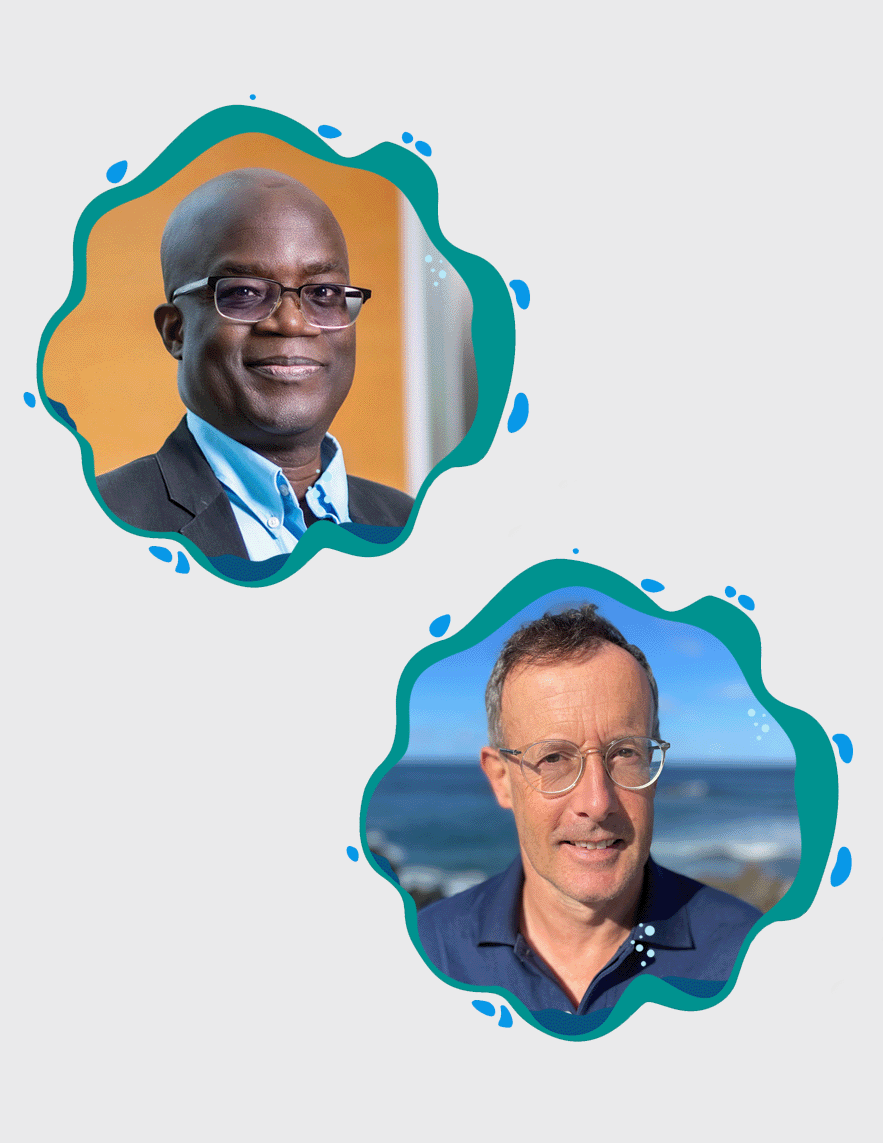

Episode 5: Are blue bonds the silver bullet for ocean conservation? Part II
This is part two of our double feature on blue bonds.
Last time we were introduced to blue bonds through the pioneering example of the Seychelles a few years ago. But today there’s a whole new generation of debt-for-nature swaps that restructure the debt of entire countries.
In this episode, we speak to two of the people responsible for designing these deals to find out how they work – including the complex insurance clauses tying them together – and how widely they could be replicated.
Featuring Slav Gatchev, Managing Director of Sustainable Debt at The Nature Conservancy; and Simon Young, Senior Director of the Climate and Resilience Hub at Willis Towers Watson.
**SHOW NOTES**
You can find out more about Slav and Simon’s ‘inverted avocado’ here: http://bit.ly/3UaLzIw
Episode 4: Are blue bonds the silver bullet for ocean conservation? Part I
What are blue bonds? They’re some of the biggest deals in ocean finance today – in some cases involving restructuring the debt of entire nations. But how do they actually work?
This is part one of two episodes about blue bonds, where we’re travelling to the Seychelles to talk about the first blue bond ever created – and asking how they deliver money to Nature-based Solutions.
Featuring Marie-May Jeremie, CEO of the Seychelles Conservation and Climate Adaptation Trust; and Melissa Walsh, Sustainable Ocean Finance Lead at the Minderoo Foundation.

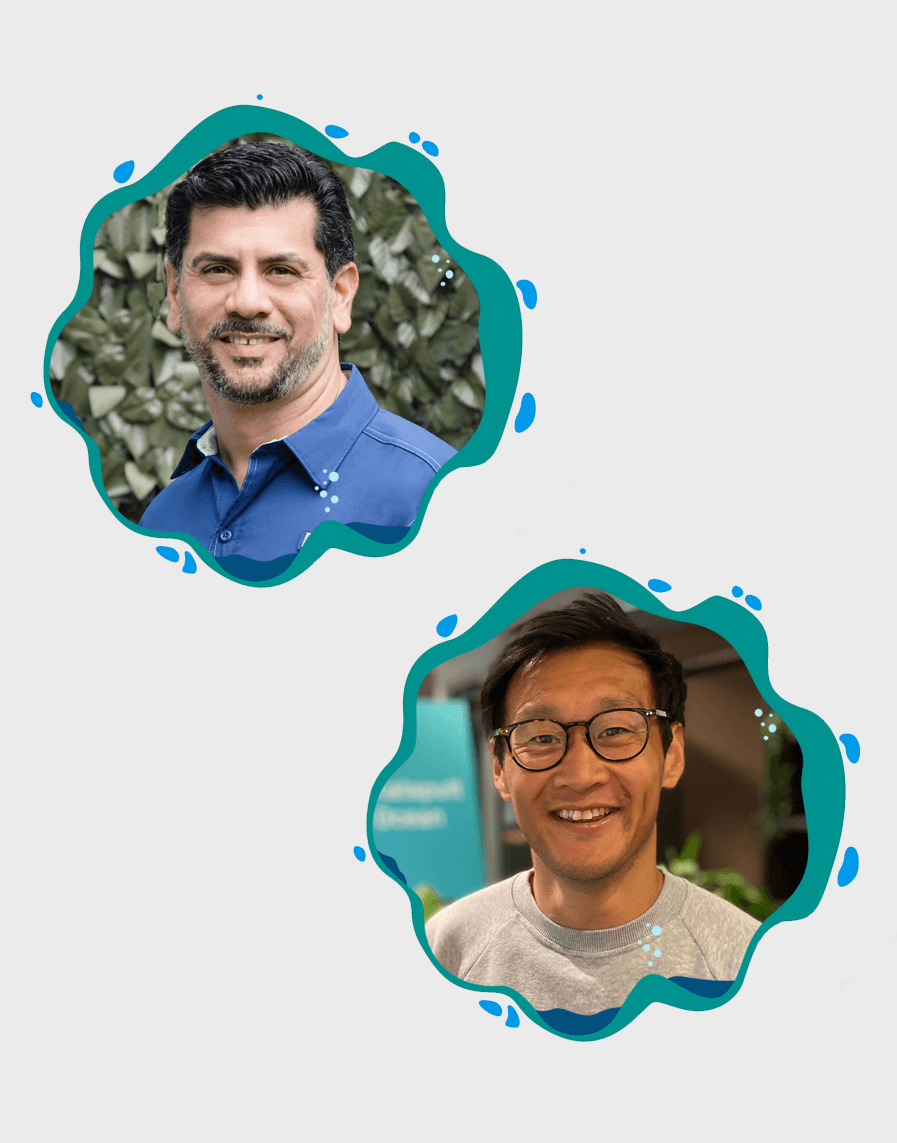
Episode 3: Insights from the boardroom: two investors on Nature-based Solutions and tech investments
On this podcast we talk a lot about Nature-based Solutions. But the devil is in the detail for actually implementing them in an investible way on the ground.
So in this episode, Dorothée Herr is joined by two seasoned investors to help break down the challenges in investing into Nature-based Solutions, and discuss what other investments – such as tech – can offer in support.
Featuring Yabanex Batista, Deputy Head of the UN’s Global Fund for Coral Reefs; and Jonas Skattum Svegaarden, CEO of Katapult Ocean.
Episode 2: Blended finance and super typhoons: a reality check from the Philippines
When a deadly super typhoon hit the Philippines last year, it damaged thousands of local livelihoods and wiped out much of their seaweed production. Blended finance – and an investor able to adapt – provided a lifeline.
In this episode we’re revisiting Coast4C for an update on the real-life challenges of Nature-based Solutions project development, as well as talking to a fund manager who helped close a vital deal with them at an incredibly challenging time.
Featuring Nick Hill, Co-Founder and CEO of Coast4C; and Gracie White, Senior Manager of Global Ocean Investments at Conservation International Ventures.
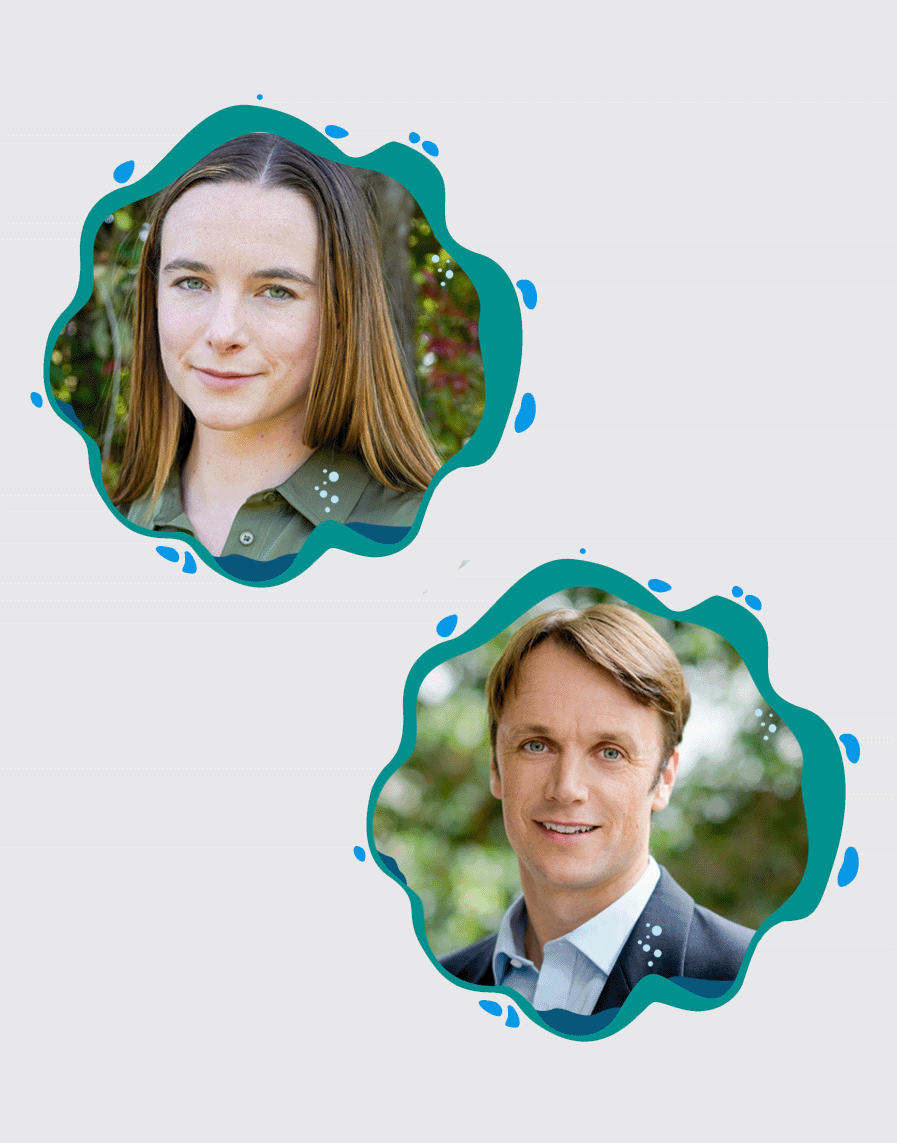

Episode 1: Why private finance for ocean conservation?
Welcome to season 2! In the first episode, we’re going back to basics. Why should the private sector be involved in ocean finance in the first place?
Private finance actors and their contributions are being increasingly recognised — but not everyone is on board with their new place in ocean conservation and restoration. Are we making a deal with the devil? Is this a waste of taxpayers’ money? Or is it crucial for the future of our ocean?
Featuring Ivo Mulder, Head of the UN Environment Programme’s Climate Finance Unit; and Melissa Garvey, Global Director of Ocean Protection at The Nature Conservancy.

Season 1
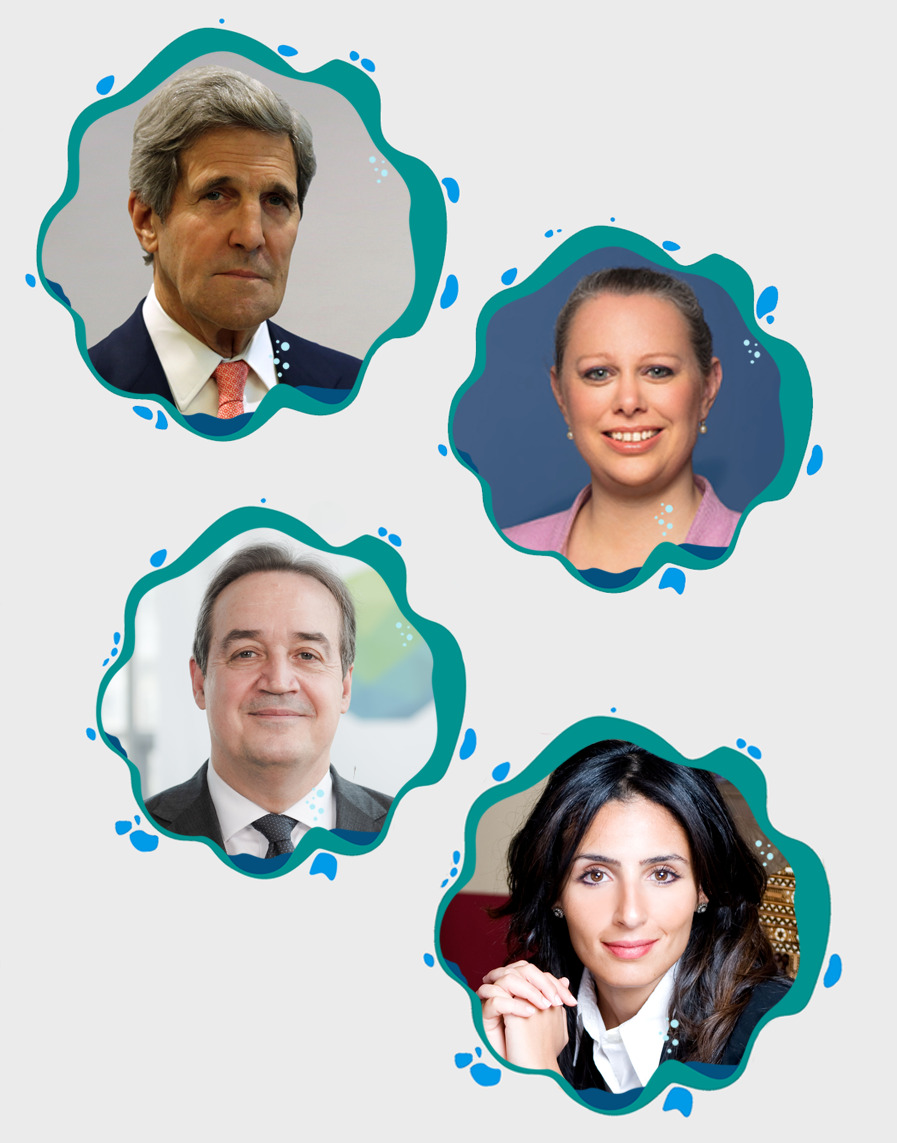
Episode 10: Towards a new blue finance world
Right now, the global thinking around financing ocean conservation is massively changing. Are we on the right path? And what does the future look like?
In the season finale, we’re speaking to leading environmental figures about the road ahead for coastal and marine Nature-based Solutions for climate, biodiversity and sustainable development.
With special thanks to GCF Executive Director Yannick Glemarec, IUCN President Razan Al Mubarak, Luxembourg’s Minister for the Environment Carole Dieschbourg, and US Special Presidential Envoy for Climate John Kerry.
Episode 9: Centralised vs Decentralised? How to finance Nature-based Solutions
From global trust funds to brand new decentralised approaches, what are the pros and cons of these approaches for building an investible pipeline for Nature-based Solutions within developing countries?
In this episode, BNCFF manager Dorothée Herr explores initiatives and principles that guide insurers and impact funds. Plus find out how new forms of decentralised finance are using blockchain to create impact faster.
With special thanks to Leah Bunce Karrer, Senior Environment Specialist for the Global Environment Facility; Jessica Smith, Nature Lead at United Nations Environment Programme Finance Initiative; and Linwood Pendleton, Executive Director of the Ocean Knowledge Action Network and who leads the Moonjelly Academy.
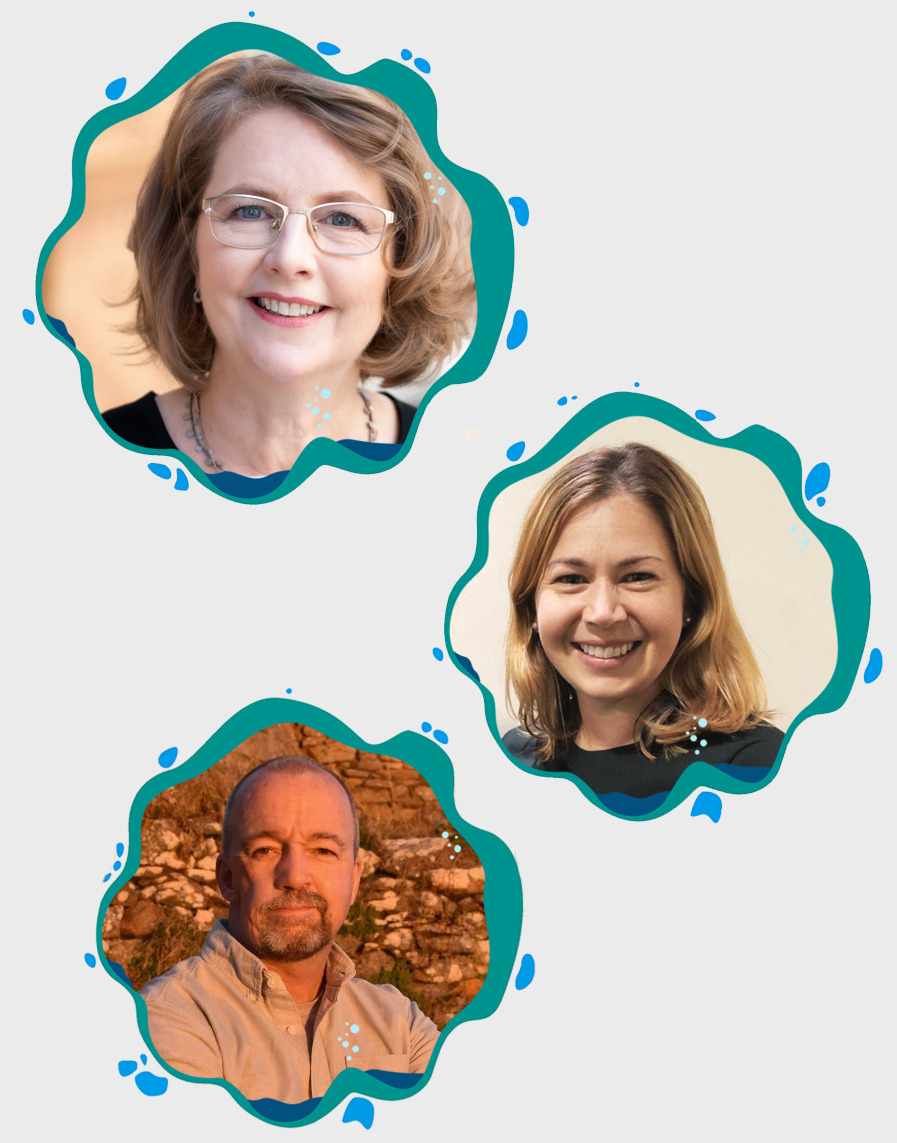

Episode 8: How banks and insurance companies can help Nature-based Solutions
Banks and insurance companies command vast amounts of money. When it comes to financing marine and coastal conservation and restoration, how can they get involved?
In this episode, BNCFF manager Dorothée Herr questions a banker, an insurer, and a policy expert about aligning global efforts with ocean impact. Can proper disclosure mechanisms make sure companies’ resources are going to the right places? What kinds of insurance products exist for the blue economy? And what policy signals does the world of finance need?
With special thanks to Judson Berkey, Managing Director of Sustainability Regulatory Strategy at UBS; Chip Cunliffe, Biodiversity Director at AXA XL; and Moritz von Unger, Policy Director at Silvestrum. Additional thanks to Martin Koehring, Head of the World Ocean Initiative at Economist Impact.
Episode 7: Local communities: what do they have to gain?
Creating lasting change for coastal communities and engaging across stakeholder groups – including local governments – are both top of everyone’s priorities. But they’re often easier said than done.
In this episode, BNCFF manager Dorothée Herr talks to three conservationists with decades of experience working on coastal and marine projects around the world. What’s the right way for projects to interact with local people, especially when they’re applying new business models and finance approaches? And what are the most common mistakes?
With special thanks to Ali Raza Rizvi, Head of Climate Change at the IUCN; Lalao Aigrette, Technical Advisor for Mangroves in Madagascar at Blue Ventures; and James Kairo, Chief Scientist at the Kenya Marine and Fisheries Research Institute.


Episode 6: Monitoring, reporting, and verification
When developing a coastal or marine Nature-based Solution, it’s not enough to just assume you’re having a positive impact. You also need to measure it, and to prove it.
In this episode BNCFF manager Dorothée Herr discusses the process of monitoring, reporting, and verification. What impacts can actually be measured, and what are the biggest challenges? We look through the lens of carbon credits by speaking to the whole chain of people involved: seller, certifier, and buyer.
With special thanks to Whitney Johnston, Director of Ocean Sustainability at Salesforce; Maggie Kim, CEO of the Gold Standard Foundation; and Devan Wardwell, Director of Growth at Forest Carbon.
Episode 5: Infrastructure projects and the right enabling conditions
Big problems require big solutions. We need to start integrating the conservation and restoration of nature into even the largest of development and infrastructure projects. Creating the right market conditions and policy incentives is key.
In this episode BNCFF manager Dorothée Herr talks to three experts about the opportunities and limitations of green-grey investments – including a government representative from Chile, who explains how to make Nature-based Solutions work on the national level.
With special thanks to Carolina Urmeneta, head of Chile’s Office of Climate Change; Alejandro Litovsky from Earth Security; and Craig Cogut from Pegasus Capital Advisors.
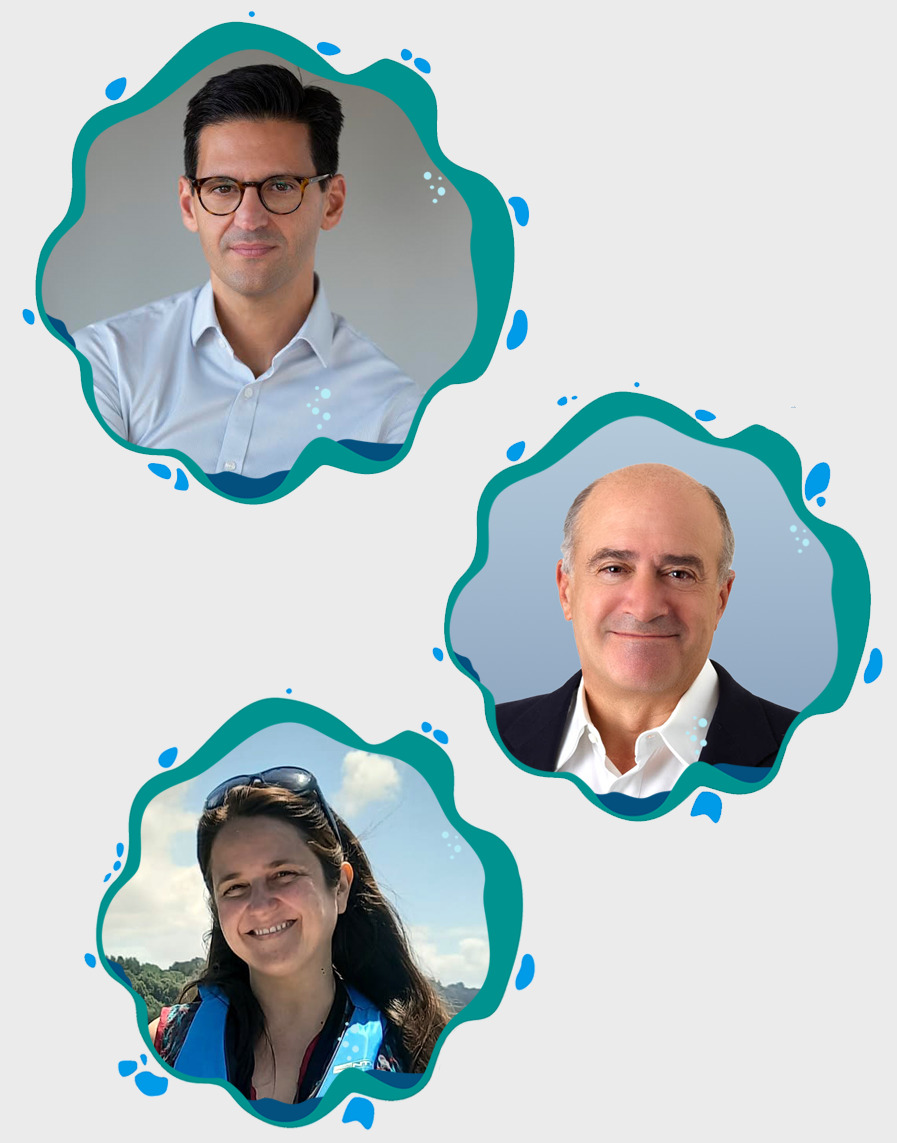
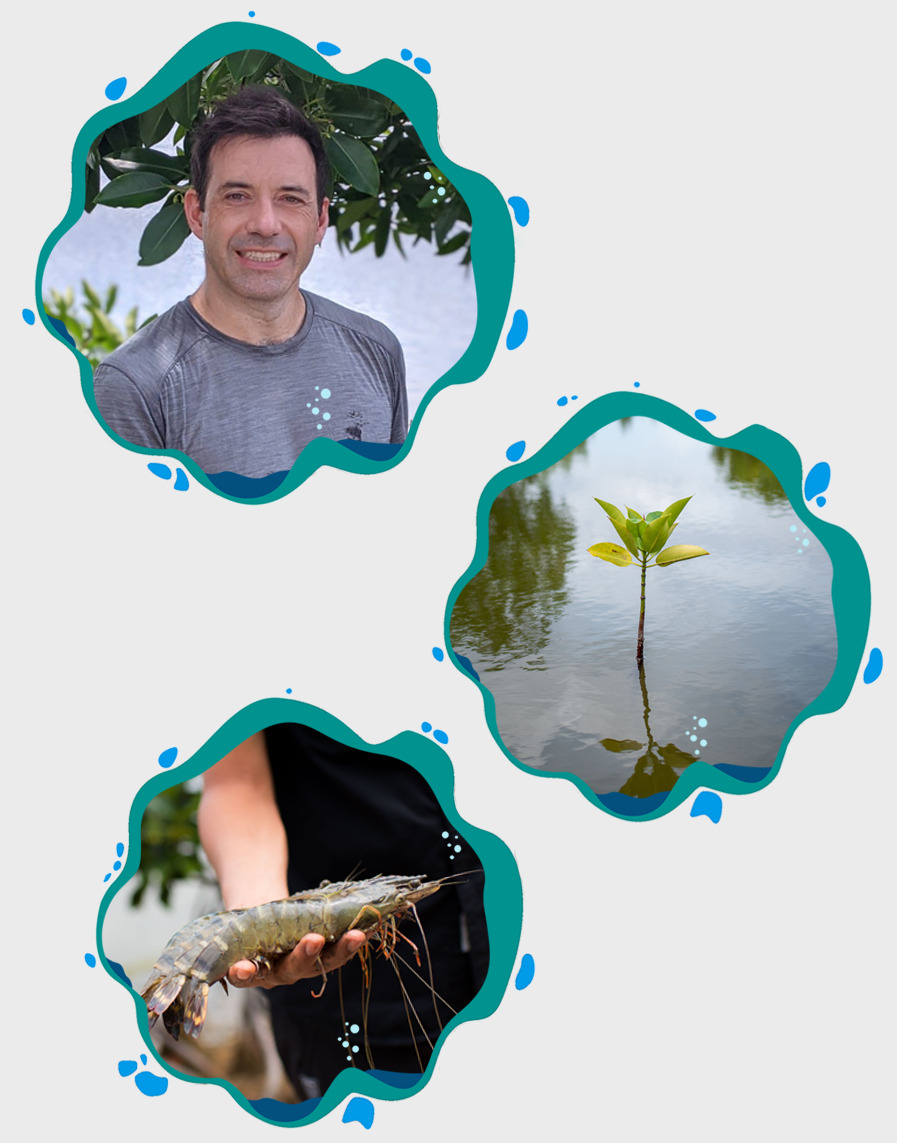
BONUS Episode: A visit to a shrimp farm in Indonesia
In rural Indonesia, a stunning Nature-based Solution is being tested: helping local shrimp farmers to replant mangroves around their ponds, increasing their yield while restoring the ecosystem. In this bonus edition of the podcast, we’ll transport you there.
Today we’re diving into the project that was described in the previous episode by Thomas Egli. Thomas recorded the sounds of the landscape while out in Borneo, as well as his own reflections. Here we’re reproducing his audio logs in full.
With special thanks to Thomas Egli and Firman from Blueyou.
Episode 4: Becoming bankable: what impact investors expect
What do investors look for when they buy into Nature-based Solutions? In our previous episode we discussed the process of becoming bankable from the project developers’ points of view; now, we’re switching to the impact investors’ side.
BNCFF manager Dorothée Herr asks two fund managers what they think makes a Nature-based Solution attractive for them to invest in. Plus, an innovative mangrove project in Indonesia shows how blended finance can support the early years of a blue natural capital business – and help it get investment-ready.
With special thanks to Simon Dent from Mirova Natural Capital, Martin Berg from Climate Asset Management, and Thomas Egli from Blueyou.

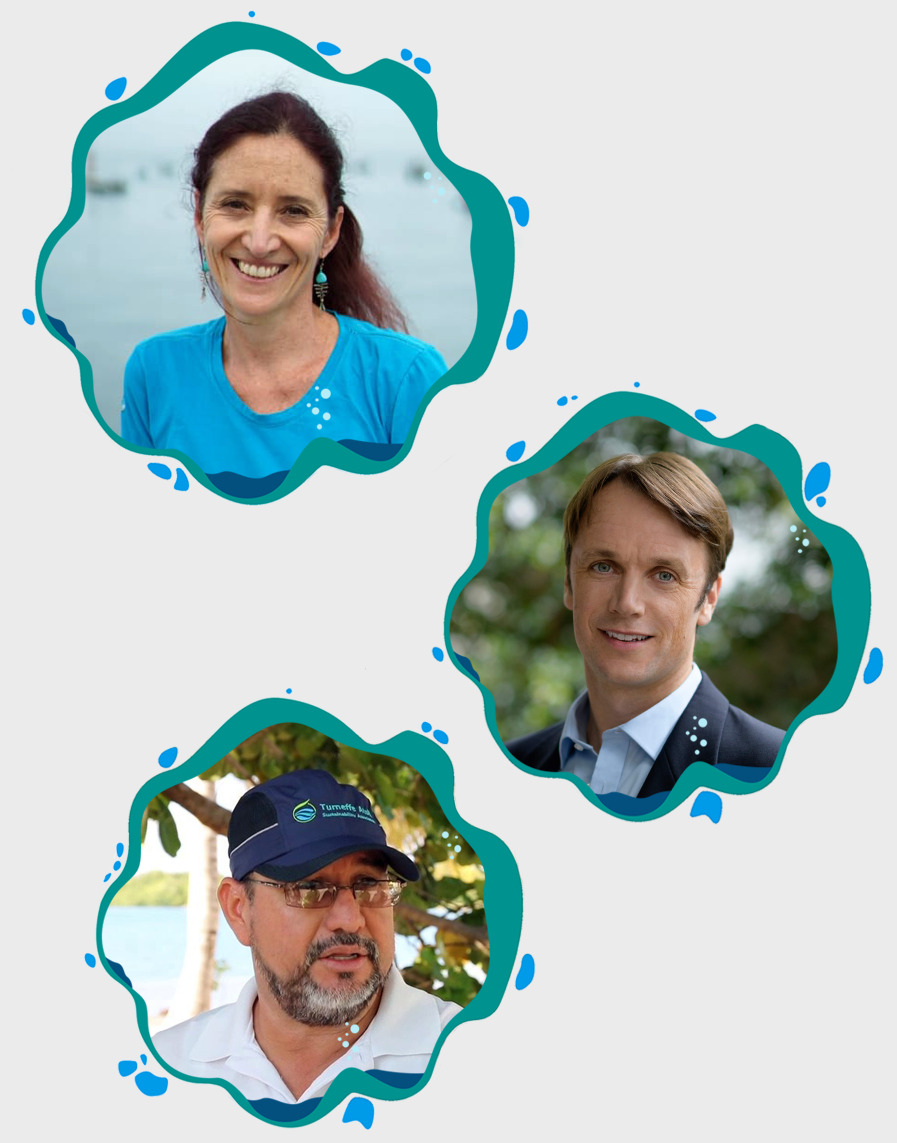
Episode 3: Becoming bankable: project developers tell their stories
The path from charity to company can seem daunting. But for ocean conservationists who want more than relying on sporadic grants and donations, there is a way forward. In fact – there are many.
In this episode, BNCFF manager Dorothée Herr meets three project developers who are each becoming bankable in fundamentally different ways: using seaweed supply chains, tourism in marine reserves, and even selling carbon credits. Each method is helping to maintain and restore extraordinary ecosystems – while creating opportunities for local communities.
With special thanks to Nick Hill from Coast4C, Valdemar Andrade from the Turneffe Atoll Sustainability Association, and María Claudia Diazgranados from Conservation International.
Episode 2: Nature-based Solutions: investments for the planet
Nature-based Solutions are neither wind farms nor sustainable engineering. And they are more than your usual conservation efforts. Instead, they’re projects based on managing real ecosystems – with wide societal benefits, positive financial impacts, and a chance to create a more sustainable future.
In this episode, BNCFF manager Dorothée Herr explores the ideas behind Nature-based Solutions as long-term investments, discusses the case study of an extraordinary marine reserve in the Philippines, and discovers how projects like these can be good for people, planet, and profit.
With special thanks to Minna Epps from IUCN, Nathalie Roth from 4Climate, and Angelique Brathwaite from Blue finance.

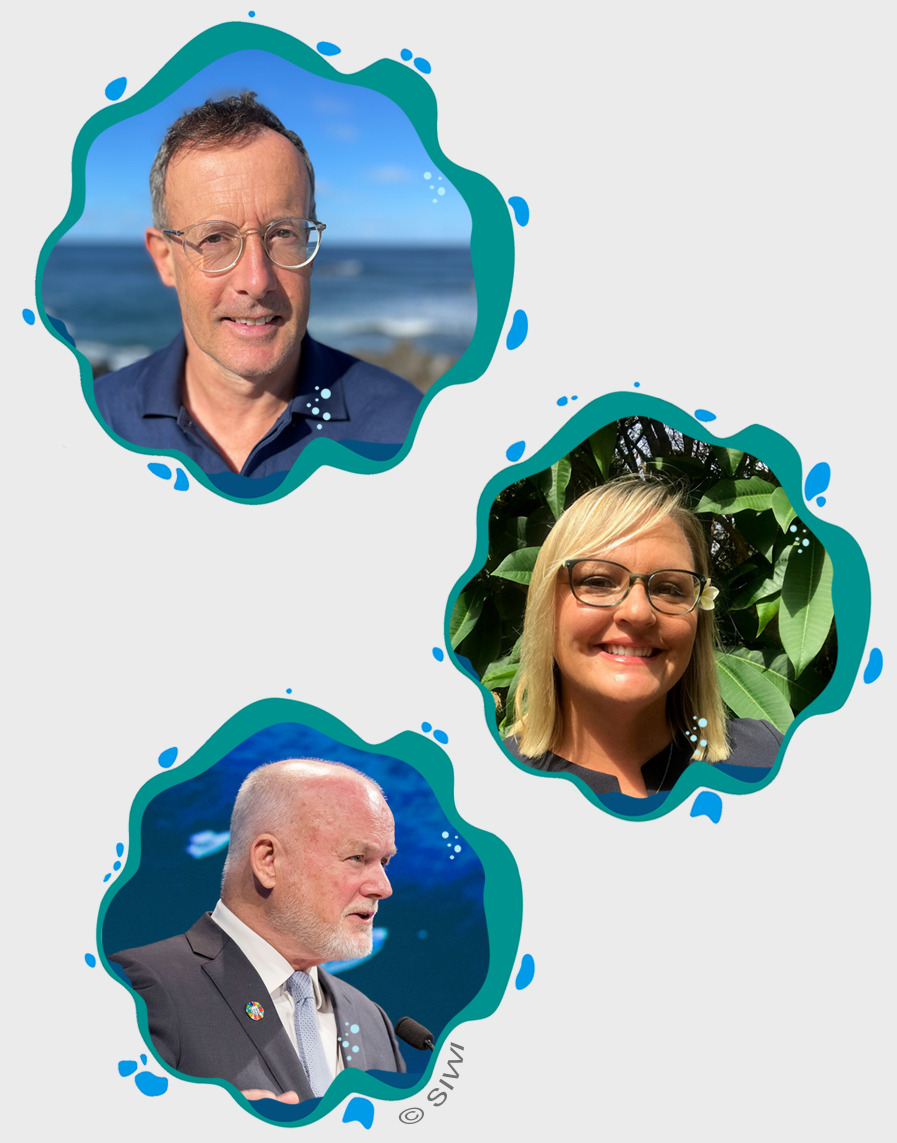
Episode 1: A new future for ocean finance
The oceans today face extraordinary threats. But the funding to conserve and restore them is currently extremely limited. We need to make a fundamental shift in how we think about financing ocean conservation.
In this first episode, BNCFF manager Dorothée Herr will introduce the world of blended finance; how private sector money unites with public and philanthropy to bridge the funding gap.
With special thanks to Peter Thomson, the United Nations Secretary-General’s Special Envoy for the Ocean; Torsten Thiele from the Global Ocean Trust; and Melissa Walsh from the Asian Development Bank.

UN Ocean Conference Special
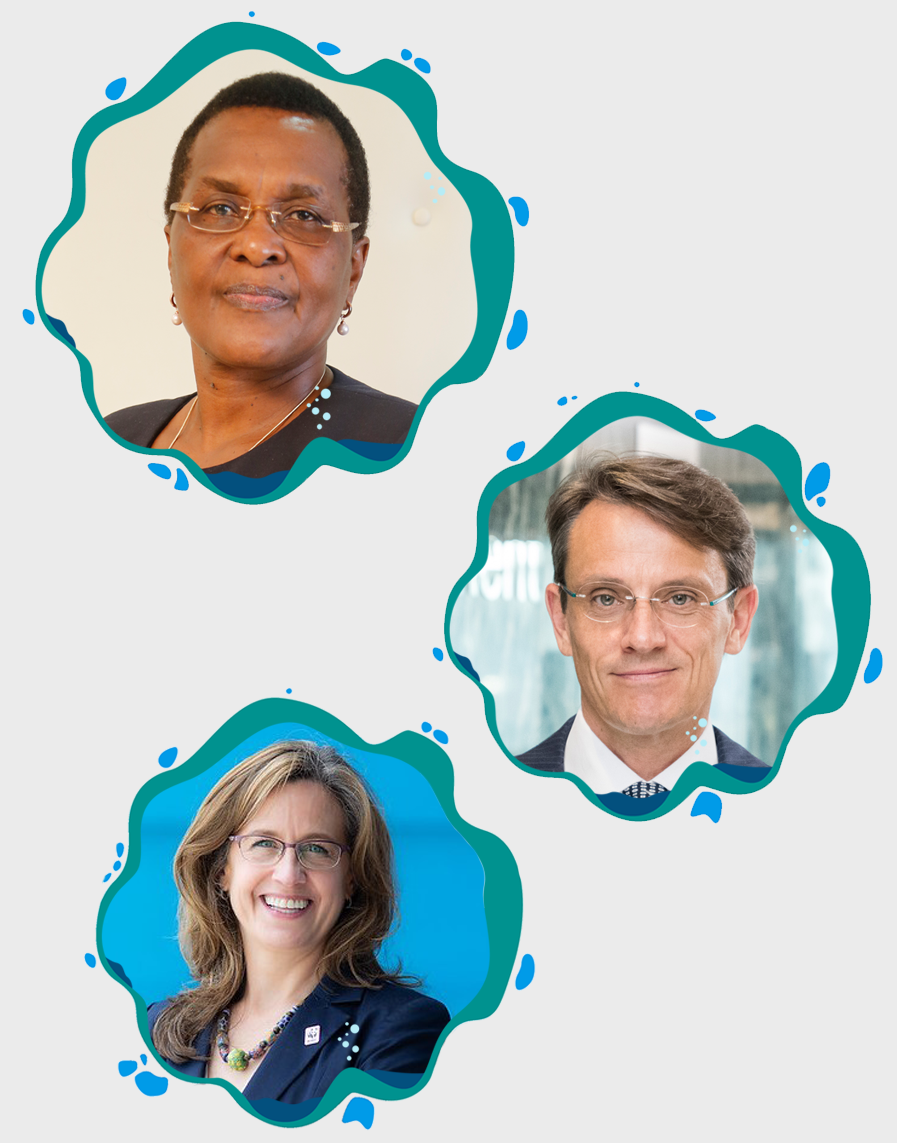
SDG 14: Are we swimming or drowning?
In this bonus episode ahead of the 2022 UN Ocean Conference, we’re looking at Sustainable Development Goal 14: to conserve and sustainably use the oceans, seas, and marine resources.
It’s been seven years since the Sustainable Development Goals were internationally adopted. Are we on the right track? And have new forms of private sector finance been involved?
With special thanks to Nancy Karigithu, Kenya’s Special Envoy for Maritime and Blue Economy; Margaret Kuhlow, Global Finance Practice Leader at WWF; and Claudio de Sanctis, Head of Deutsche Bank’s International Private Bank and CEO Deutsche Bank EMEA.
Trailer
Trailer: Investing for Ocean Impact
Healthy mangroves can provide a basis for carbon credits. Coral reefs are built into new insurance products. Restored ecosystems increase yields from sustainable fishing, while protecting against coastal erosion.
Join us as we take you through the business case for investing in our ocean.
